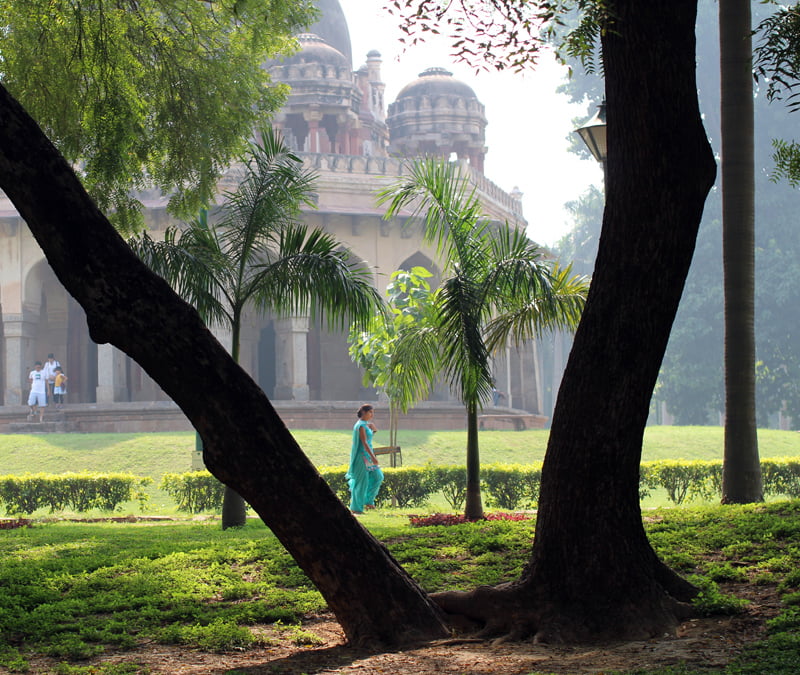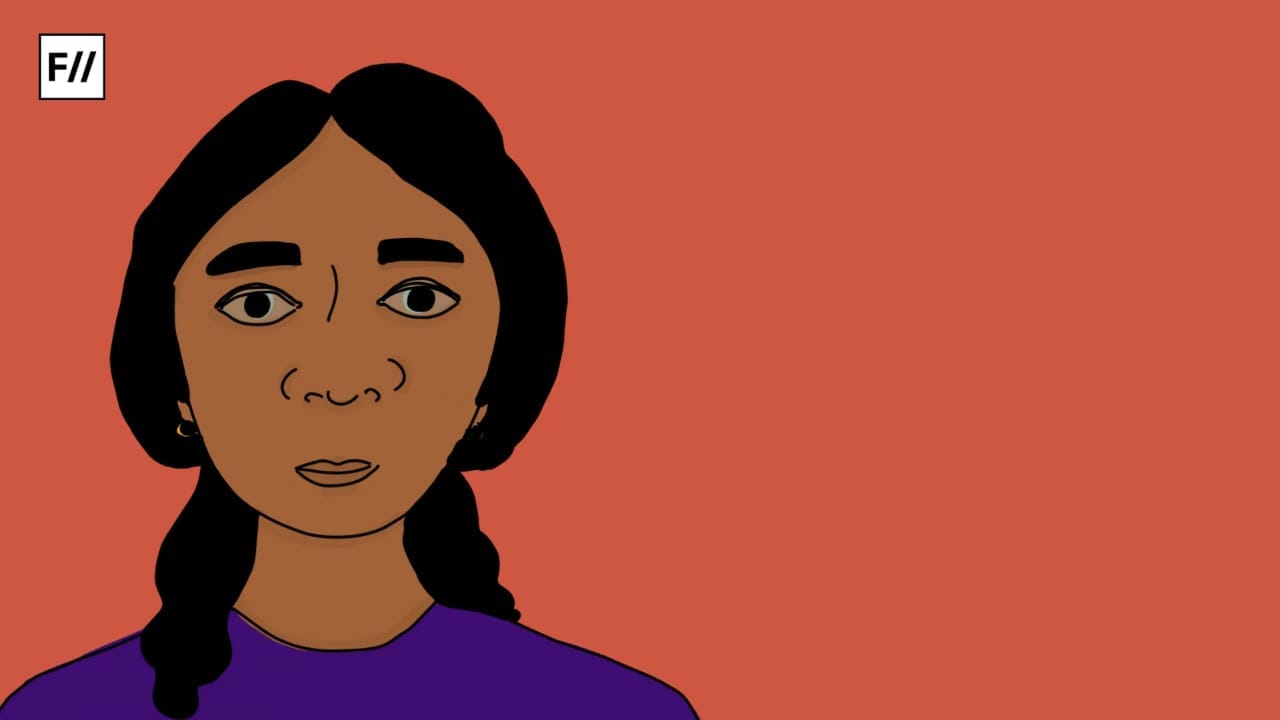Editor’s Note: This month, that is February 2021, FII and The Minor Project are looking for article submissions on the topic of Narrating Violence and Trauma from Childhood to highlight the ways we in our childhoods, experience various forms of brutality from our adults, mentors, peers and even their institutions that may lead to a sustained memory of difficult experiences and mental health issues. The Minor Project is a digital platform for public dialogue to promote discourse on ending violence, abuse and exploitation of children by Leher, a child rights organisation, whose focus is on building communities that care and act for the safety and protection of children. If you’d like to share your article, email us at info@feminisminindia.com.
1986
A scene from the Tamil film, Mouna Ragam stays with me. The mother tells her daughter to go to the bedroom once the arranged marriage rituals are done. Your groom is waiting, she says, impatient with the delay. The daughter asks, “Would you send me to a strange man’s room if we weren’t married?“
Even at 16, I knew we were being groomed for this push into bedrooms with strange men by mothers who’d walked into such rooms 20 plus years ago. If you live in a city like Delhi, this bottle-fed programming mandates a game of one-sided dodgeball with battalions of public gropers and humpers. Survive this tournament, and you enter that room.
Get hit, and you’re out.
December, 2016
On Twitter, my gaze snags on an article on the itinerant charms of Delhi. William Dalrymple, enchanted by the capital’s streets and monuments, writes, “[d]espite all the changes, everything I love about the city is still here.” He urges newcomers to be undaunted and discover parts of the still-captivating city. Start at Lodhi Gardens, or Safdarjung or Humayun’s tomb, he advises.
A vein pops. Some of my 30-year-old, made-in-Delhi trauma comes splashing out in a tweetstorm. Public spaces are made for penises, I scream into the void.
Duh, you say, so are private spaces — bedroom to boardroom.
No shit.
1980s
A DTC bus, as it always is — pre-heated ovens of baked-in cold sweats. On the 500 bus (or is it the 512 … 501?) he presses close, plastering himself to my back, my butt … grinding. I’d arch away, but there’s no room.
My face burns. Do the other women see, know? We avoid eye contact, each carrying our compulsory half-molestations in clenched stomachs. Our bodies are generic, substitutable to these ‘Eve-teasers.’ Speaking out, standing up for each other would attract attention. We Eves are deft at dodging.
Another day, another bus, someone trying to cup my ass. My butt scrunches tight to repel contact. Thirty years later I still remember the mustard and maroon salwar kameez I wore that afternoon.
Growing up in Delhi, daily pawed at in DTC buses, we internalised our own safety apps and creep-radars. Decades before Safecity.in and @pinthecreep, we knew: never go to Lodhi Gardens. The hysterical alert was high on female whisper networks: avoid this heritage space; it’s nothing but a den for sexual perverts and/or a lovers’ point where couples go to make out and get harassed by looky-loo hawaldars.
A Delhi-ite for 11 years and to never visit Lodhi Gardens? Not Safdarjung’s Tomb or Humayun’s either. To only see the back of Red Fort from a Mudrika, visit Qutub Minar and two-three other landmarks — overseen by male chaperones.
This is normal.
I too loved Delhi once — whatever little I was allowed to see of it. But so many sites came with invisible Lakshman rekhas: The Ridge? You’re dead meat. DePaul’s at Janpath? A pick-up joint. Even our safe spaces didn’t escape sexual branding: studying at LSR/Miranda/JMC (insert any women’s college name here)? Hello, prostitution-ring alert!
I got to move away from Delhi. I don’t fear for my daughter’s safety as mom once did for mine. Because being a girl’s mother in Delhi mutates a mom’s DNA. Paranoia burrows deep into her skin; worry steeps her bones. Clingy vigils gore my back as I walk to the bus stop. I’m banned from autorickshaws.
Mummy’s ceaseless dread weighs me down. Stomach-knots mushroom when I miss a bus, or one breaks down. With no landline at home, I call a friend from a public phone begging her to walk over, tell mom I’ll be late — a bus strike’s been unleashed. The DTC bus is after all the rape room of our nightmares and transit deliverance.
Thirty years and thousands of miles later, Delhi continues to gaslight. I call to confirm with friends: Am I misremembering the city’s hot spots as we braced for combat every day? The paranoid mothering?
No, me too.
Felt filthy, a friend says. Another tells me she’s visited most of the monuments on Dalrymple’s list. With a husband. But a penis in tow didn’t keep away grabby paws.
1985–7
11th or 12th grade. A pillion-rider grabs my breast on the way to school. Dad’s friend slowly runs his hand over my bra-strap in greeting. I name him 30 years later. Dad will never confront him though — yay uncle, you got away with it. I find comfort only when family friends confirm uncle’s groping.
We exhale.
Drunken exposure in the street. A nipple-twist on the night train from Bareilly to Delhi. I’m 16 or 17, asleep on my berth. I try to stay awake to ward off his repeat-offense with no real plan — too embarrassed to scream or create a scene. I turn over, out of reach. But his vigil is more alert. He claws his chance as I fall into an unwilled slumber.
1992
A disabled door on a ladies’ train compartment. He reaches to touch my foot on the Lucknow Mail. Thank god the older women stand up for me that night when I yell — “Aashirwad chahiye, kya?” (need blessings?) And thank god my sarcasm doesn’t make him resort to acid or rape.
Thank you.
1990
I thank the DTC bus conductor and driver too. I’m the only one on the bus. Another time I simply get off before my stop.
1993
“Dus rupaye! Dus rupaye” (Rs. 10! Rs. 10), he yells before buzzing away in a Maruti. I’m grateful that day too standing outside my hostel gate. Grateful he didn’t pull over.
So many men to thank.
1992
I yell today. He’s staring. A blistering fury leaks out. “Baki auraton ko bhi ko bhi ghoor lijiye, nahin toh vo bura maan jayengi” (Stare at other women too, or they’ll feel left out!), I dare after many mental rehearsals. I feel powerful when others laugh; he gets off at the next stop. But that entire bus-ride after I’m terrified he’ll track me down. Acid? Rape? Surely, he’ll want to teach me a lesson for laughing at him?
We dodge. We make room for younger girls daily initiated into this procedural hazing. Conveyor belts of fearful, ducking vaginas stretch from homes, schools, clinics, corporate offices — with looming war zones of public mazes to navigate in between.
We become un-degreed experts at reading men. A skill earned at a steep price — low-grade PTSD, hyper vigilance, deep mistrust, a fuck ton of self-doubt … And lifelong self-censorship. Shhh, our unsilenced voices carry the power to ‘ruin men’s lives.’ We bend over backwards to shield hyperventilating mothers, hide sexual pain, and saddle daughters with a baked-in aversion to sexual contact…
Voices in our heads nag us to shut up. Don’t ask, don’t tell. Schooled to fear delinquent penises yet groomed to enter that room, no questions asked — that’s us.
1991
Peeping Tom alert. The one time I find the courage to tell my parents, and Dad says, “All young boys do this. It’s nothing!“
That ‘young boy’ is in his mid-20s.
Harvey Weinstein had teams of professionals and ex-Mossad enforcers protecting him for decades. These everyday Harveys have their own guardians. Millennia of parental fears and social silencers redact our stories of half-rape.
Some of us remain unmolested, unraped. But they try. One humid afternoon I almost become a disappeared statistic. Some instinct makes me leap away from a partially shuttered shop.
That metallic whir stays with me.
My mother too would’ve been a lost statistic — at 20. She tells me in my 20s, and begs, “Don’t tell dad.” I won’t. But I tell my daughter. And then she tells me of being 10 and groped in the pool. In California. He’s white. Around 14.
March, 2019
On Twitter, my gaze snags on the article: “Why a small group of women walks around Delhi at midnight.” Chanpreet Khurana joins a group of female night walkers of Delhi, because “The more women occupy public spaces, the more they help to normalise their presence in such places at all times of the day — and night.”
I breathe.
According to Jasmeen Patheja, founder of Blank Noise, a non-profit organisation that works to end sexual violence, these midnight walks ‘change the story of fear.’
My story of fear remained unchanged for decades. I’ve carried it frozen for too long. Could I put it down?
The next time I’m in Delhi, I could try. I could occupy Delhi. I could be fearless.
Shall we start at Lodhi Gardens, or Safdarjung or Humayun’s tomb?
Featured Image Source: Benjamuna’s blog
About the author(s)
She loves reading and writing about women, stalks Twitter, and rarely follows her own advice.





Interesting read ?